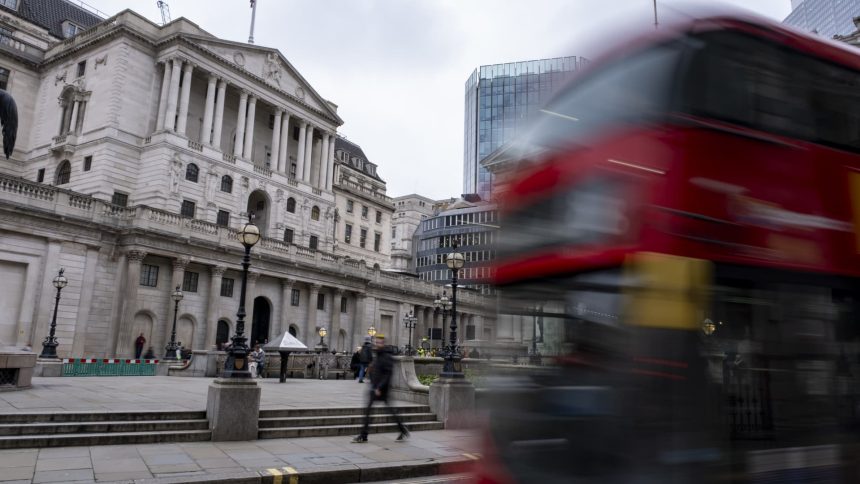Wage pressures have increased since last meeting: Moody’s
Wage growth is a concern that has been flagged repeatedly by the Bank of England — and the new U.K. government’s announcement this week of an above-inflation pay rise for the public sector may not have helped matters, David Muir, economist at Moody’s Analytics, told CNBC by email.
“For the hawks on the [Monetary Policy] Committee, concern that wage growth is uncomfortably high is likely to be even higher after the government’s recent decision to award robust pay increases to public sector workers. But even if rates remain on hold for a further month, we see a majority for a cut by the September meeting, when it will be clearer that upside risks to inflation are receding,” Muir said.
The Labour Party took office in early July after defeating the Conservatives in an election.
— Jenni Reid
UK rate decision ‘going to be close’, Goldman Sachs says
Goldman Sachs’ chief European economist said Thursday that the Bank of England’s monetary policy decision is “going to be close” while suggesting that a rate cut may win out.
Jari Stehn said policymakers were likely to “look through” volatile services inflation and instead focus on underlying progress in the economy.
“We think when you look at the totality of that data, it’s probably enough for them to cut. But, as you say, it’s going to be pretty close because it depends a little bit where you look in terms of the data,” he told CNBC’s “Squawk Box Europe.”
— Karen Gilchrist
Middle-ground voting members to swing BOE’s decision
The Bank of England’s Monetary Policy Committee contains nine members who vote on setting the key Bank Rate — Governor Andrew Bailey, Chief Economist Huw Pill, three deputy governors (Sarah Breeden, Clare Lombardelli and Dave Ramsden), and four external members appointed by the U.K. finance minister (Megan Greene, Swati Dhingra, Jonathan Haskel and Catherine Mann).
As in any rate-setting committee, there are more hawkish members — such as Haskel, who said in a recent speech he felt more evidence of disinflation was needed before reducing rates — and more dovish ones like Dhingra and Ramsden, who have already voted for rate cuts in recent meetings.
“We expect a 6-3 vote in favour of a rate cut this Thursday,” analysts at ING said in a note earlier this week.
“Two members voted for a cut in June, and it looks like at least two, perhaps three of the external members are highly reluctant to cut just yet. That leaves four or five in the middle, and history suggests they tend to move as a group.”
“In other words, don’t look at June’s 7-2 decision to keep rates on hold and think that means we couldn’t get a majority in favour of a cut this week,” they said.
— Jenni Reid
Why the BOE’s interest rate decision is on a knife-edge
Before the European Central Bank cut interest rates at the start of June, policymakers spent weeks clearly signaling their intention to do so in speeches and interviews.
While they have had to read between the lines a little more, traders are now near-certain the U.S. Federal Reserve will begin its own path of rate cuts in September.
Just few hours ahead of the Bank of England’s August meeting, however, market pricing had slipped to a 55% probability of a rate cut from the central bank before rising to around 61% — with analysts speaking with little confidence about the decision.
One reason for the uncertainty and relative lack of strong signaling from the BOE is that the members of its voting Monetary Policy Committee are divided.
The MPC described its decision to hold rates in June as “finely balanced,” with some members concerned by wage growth and the elevated rate of services inflation, and others more focused on the broader disinflationary trajectory.
Another factor that has muddied the waters for those trying to guess its next move has been the six-week period from May 23 to July 4 in which the U.K. held a general election campaign, restricting central bank communications — including across its June 20 meting.
Read more here.
— Jenni Reid
Read the full article here




